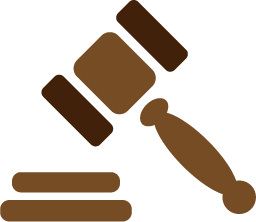What Is A Bankruptcy Discharge And Why It Matters
When you are unable to pay your bills, it may be time to reevaluate your financial situation. If you are unable to bring in more income, you have the option of declaring bankruptcy. With a chapter 7 bankruptcy action, you may be able to have nearly 100% of your debt forgiven. In legal terms, this action is known as a debt discharge. To find out more about bankruptcy discharge and what it can mean to your situation, read on.
The End Result
A chapter 7 action can take a few months to be complete. In most cases, the filer completes a couple of bankruptcy education classes and attends the creditor's meeting a few weeks after the filing. If everything goes smoothly, and it usually does, you can expect to get a notice in the mail containing your final discharge. Your chapter 7 bankruptcy is now over. This petition formally absolves you of the debts listed therein. Be sure to check the listed debts against your copy of the debt matrix filed with your bankruptcy for accuracy. Contact your bankruptcy lawyer immediately if any of the following (rare) things occur:
- The matrix and the discharge don't match up.
- Creditors listed to contact you by mail, phone, text, or any other way.
- Your credit report continues to show debts listed as current and unpaid.
- You become the subject of a lawsuit from a creditor.
When You Keep a Debt on Purpose
It may be in some filers' interest to continue paying certain debts. Used mostly with auto loans, a debt reaffirmation means a promise to pay a debt regardless of a bankruptcy action. For example, if you want to keep your vehicle and the payments are current, you can agree to continue paying the loan as agreed. This action not only keeps you in transportation but may help as you rebuild your credit.
When Other Issues Hold Up The Discharge
Unfortunately, the final discharge cannot happen unless everything has been resolved within the bankruptcy. When a lawsuit or other adversary proceeding is initiated, the chapter 7 action cannot move forward. These may be under separate case numbers and can include issues with allegations of fraud or transfers of assets prior to a filling. For example, a creditor may object when a filer uses credit for frivolous reasons and then files bankruptcy. Or the filer sells an expensive asset like a boat and then fails to account for the proceeds.
Speak with bankruptcy attorneys for more information about any of the above.
